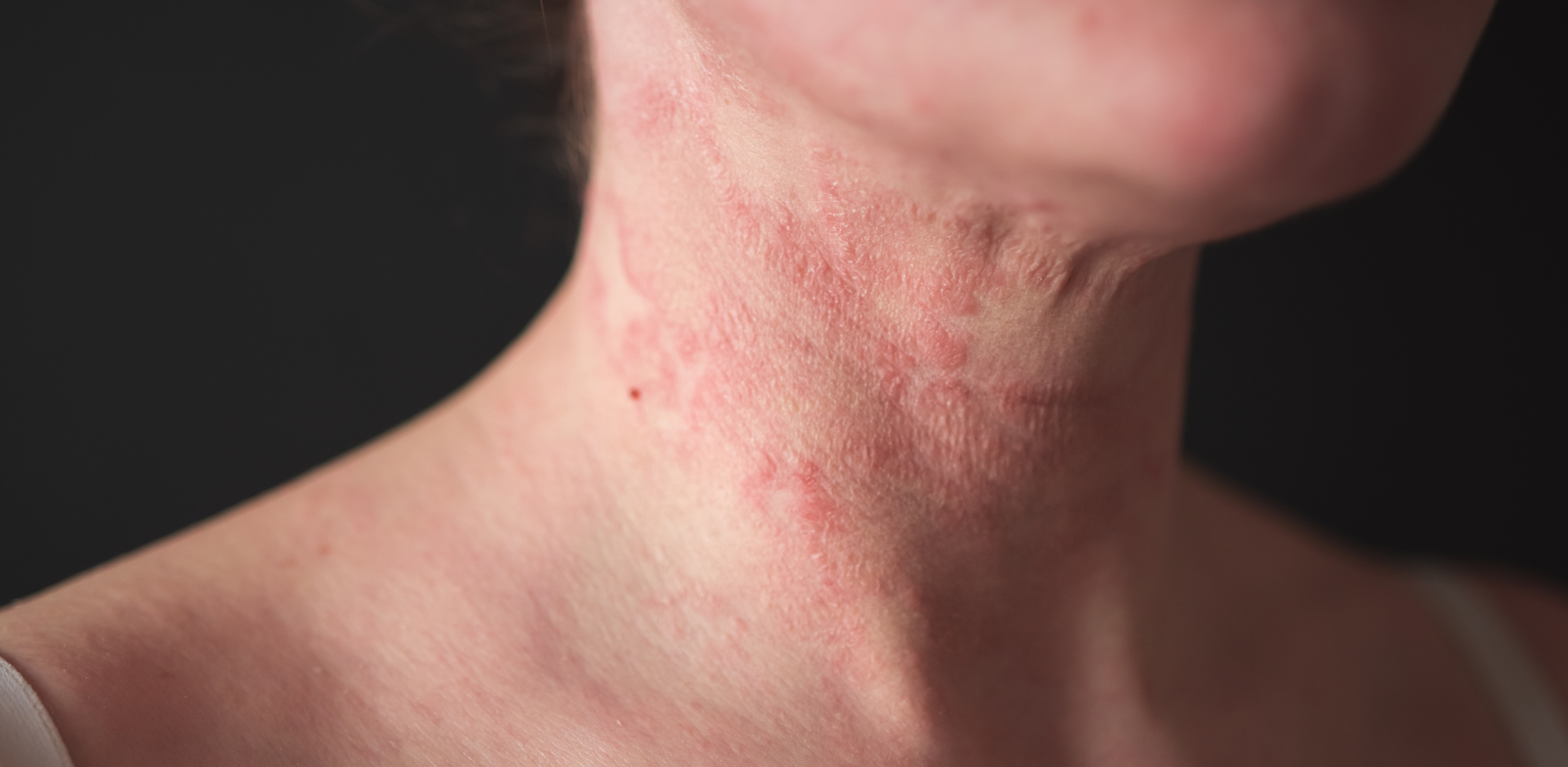Are You Sabotaging Your Healing?

Sometimes we can be our own biggest obstacle when it comes to healing, especially when you're dealing with eczema or any other skin flare-up. Here are ways to stop sabotaging your own healing:
Stick to a simple skincare routine
Often, less is more when it comes to skincare. When your skin is inflamed, it’s more sensitive and reactive, so using too many products with complex ingredients can overwhelm your skin—increasing the risk of irritation or allergic reactions. What's more, the more products you use, the higher the chance of exposing your skin to harsh ingredients, fragrances, or chemicals that can exacerbate the flare-up. Using fewer, more gentle products, helps minimize triggers. Finally, a simple routine that focuses mainly on hydration and soothing can help heal and repair the protective skin barrier, which is often compromised during a flare-up.
Wear eczema gloves, especially at night, to reduce scratching
When you flare, your skin becomes inflamed, which compromises your skin barrier—and scratching makes things worse. Eczema gloves act as a physical barrier, helping to reduce the risk of tearing the skin if you do scratch, especially while sleeping. Many eczema gloves are also made from breathable, moisture-retaining materials like cotton or bamboo, so if you wear them after applying moisturizers or ointments, they can help seal in hydration and promote skin healing.
Say "no" to quick fixes
If something claims to heal your skin fast, it's definitely too good to be true. Many quick fixes, such as overusing topical steroids or harsh anti-itch creams, provide temporary relief but can lead to skin thinning, dependency, reduced effectiveness over time, or worse topical steroid withdrawal (TSW), a results in burning, red, itchy and peeling skin.
Detach from the mirror
Constantly checking your skin can fuel anxiety and stress, which can prolong the flare-up. Avoiding the mirror can help reduce the tendency to engage in negative self-talk or obsess over the appearance of your skin, which can negatively affect your mental health. Give your skin time to heal without obsessing over every detail, and shift your focus inward and embrace self-care to encourage both physical and emotional healing.
Pay attention to your triggers
If you're unsure what is causing your flare-ups, reflect on your past few days—what you ate and drank, your environment, or any specific events that occurred in your life that could have caused stress. Eczema is a chronic condition, and long-term management depends on understanding the factors that worsen it. Paying attention to your triggers allows you to develop a personalized strategy for reducing symptoms and maintaining control over the condition.
Stop the negative self-talk
Everything is connected, and your skin hears everything your mind says. Negative self-talk can amplify stress, creating a vicious cycle where your thoughts worsen your physical symptoms. Shifting to a more positive mindset can help break that cycle and promote healing. Speak to yourself with love, not frustration.
Healing is a journey, not a sprint. Often, what is going on with your body and skin is out of your control (at least, in the short term). Understanding what may be hurting more than helping is essential in promoting long-term healing of your skin.

